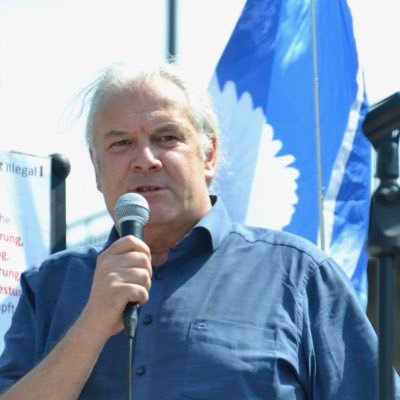Aktuell
Rede von Andrej Hunko in der Parlamentarischen Versammlung des Europarates vom 28.04.2010 im Namen der Fraktion "Vereinte Europäische Linke"
Herr Präsident,
Meine Damen und Herren!
Ich werde mich in der kurzen Zeit vor allem mit dem politischen Bericht und weniger mit der juristischen Diskussion im Holovaty-Bericht befassen.
Vielen Dank auch an Frau Keleş für den Bericht und diese wichtige Diskussion.
Ich konnte als neues Mitglied dieser parlamentarischen Versammlung nicht an den Diskussionen im Ausschuss teilnehmen, erlaube mir aber dennoch einige Anmerkungen im Namen der Fraktion der Vereinigten Europäischen Linken.
Der Bericht enthält einige wichtige Fakten und Überlegungen, die ich sehr begrüße. Hier meine ich die Punkte, die sich mit den gesellschaftlichen Ursachen der Piraterie befassen, z.B. im Punkt 6, in dem festgestellt wird, dass militärische Abschreckung keine dauerhafte Lösung des Problems der Piraterie darstellt, weil dessen eigentlichen Ursachen auf dem Festland zu suchen sind. Nur durch einen umfassenden Lösungsansatz lassen sich Armut, Instabilität und verantwortungslose Regierungsführung in Somalia und anderen Ländern, d.h. die Faktoren, die die Piraterie verursachen, erfolgreich bekämpfen.
„Wir müssen in den Landtag, sonst macht Rot-Grün da weiter, wo sie mit Schröder aufgehört haben.“ Mit diesen markigen Worten erteilt Jürgen Klute, EU-Parlamentarier der Linken, allzu strategischen Überlegungen bei der Stimmabgabe eine Absage. Jüngste Hochrechnungen wollen wissen, dass der Einzug der Linken in den Landtag eine mögliche rot-grüne Koalition wahrscheinlich die Mehrheit kosten wird. „Aber nur wenn die Linke in den Landtag einzieht, kann sie eine Politik verhindern, die weiter auf dem Rücken der kleinen Leute ausgetragen wird.
Den Rahmen für diese Stellungnahme bildete eine Diskussionsveranstaltung am Sonntag im Volkshaus Röhlinghausen, zu der die Linke eingeladen hatte. Trotz des von der Europäischen Union ausgerufenen Jahrs gegen Armut und soziale Ausgrenzung, so die einhellige Meinung auf dem hochrangig besetzten Podium, würden in NRW weiter Industriearbeitsplätze abgebaut und Existenzen zerstört.
Sie haben am Dienstag einen Prozeß gegen drei mutmaßliche Unterstützer der linken türkischen Organisation DHKP-C vor dem Oberlandesgericht Düsseldorf beobachtet. Den Aktivisten werden recht ungewöhnliche Straftaten vorgeworfen. Was hat das Außenwirtschaftsgesetz mit diesem politischen Prozeß zu tun?
Sie sollen im wesentlichen Paragraph 34 dieses Gesetzes verletzt haben. Diese Bestimmung sollte ursprünglich verhindern, daß Embargos gegen geächtete Staaten unterlaufen werden. Mit Einführung der EU-Liste angeblicher terroristischer Organisationen fallen nun auch finanzielle Verbindungen mit solchen Organisationen unter den Straftatbestand des Paragraphen 34. Jetzt will die Staatsanwaltschaft den Angeklagten Zahlungen an die DHKP-C, die auf der EU-Terrorliste steht, nachweisen.
Der Prozeß ist ein Sonderfall und ein Politikum, denn diese Konstruktion ist rechtlich sehr umstritten. Um sicherzugehen, daß auf jeden Fall Anklage erhoben werden konnte, hat die Staatsanwaltschaft den drei Beschuldigten außerdem die Mitgliedschaft in einer ausländischen terroristischen Organisation nach Paragraph 129b des Strafgesetzbuches vorgeworfen. Dieser juristische Winkelzug steht allerdings auf noch wackligeren Füßen als die Anklage nach dem Außenwirtschaftsgesetz.
In keinem Land konzentrieren sich die Entwicklungen der letzten zwei Jahrzehnte so ausgeprägt wie in Island.
Auf die Privatisierung und Deregulierung des Finanzsektors in den 90er Jahren folgte eine aberwitzige Spekulationsblase und private Bereicherung in den 2000er Jahren. Das rasant wachsende isländische Kapital expandierte wie kaum anderswo.
Von Lenny Reimann, Essen, in junge Welt vom 22.03.2010
Etwa 6000 Demonstranten haben am Sonnabend im nordrhein-westfälischen Essen eine Wende in der Sozialpolitik und die Abschaffung der Hartz-IV-Gesetze gefordert. Zu der Demonstration, die unter dem Motto »Wir zahlen nicht für eure Krise!« stand, hatten verschiedene Gewerkschaftsgliederungen, Sozialinitiativen, Linkspartei, DKP, Antifa-und Erwerbslosengruppen aufgerufen. In Stuttgart nahmen am selben Tag rund 2500 Personen an einer Kundgebung unter dem gleichen Motto teil.
Der Protest richtete sich in Essen vor allem gegen die aus CDU und FDP bestehende Landesregierung in Düsseldorf. Zu ihnen sprachen u.a. der Linksparteivorsitzende von Nordrhein-Westfalen Wolfgang Zimmermann sowie Martin Behrsing vom Erwerbslosen Forum Deutschland. Gabriele Schmidt, NRW-Bezirksleiterin der Dienstleistungsgewerkschaft ver.di, bezeichnete die »schwarz-gelbe« Wirtschafts- und Sozialpolitik auf Landesebene als »schamloses Programm zur Förderung von Hire and Fire«. Die Demonstranten forderten, die 30-Stunden-Woche bei vollem Lohnausgleich und einen gesetzlichen Mindestlohn von zehn Euro. Ein Sprecher der »Roten Antifa Duisburg« verlangte den sofortigen Abzug aller deutschen Truppen aus dem Ausland. Die Forderungen eines »Bildungsstreik-Blocks« von Studierenden und Schülern lauteten: Abschaffung von Studiengebühren, Reform des Bachelor/Master-Studiensystems sowie die generelle Einführung der Gemeinschaftsschule.

